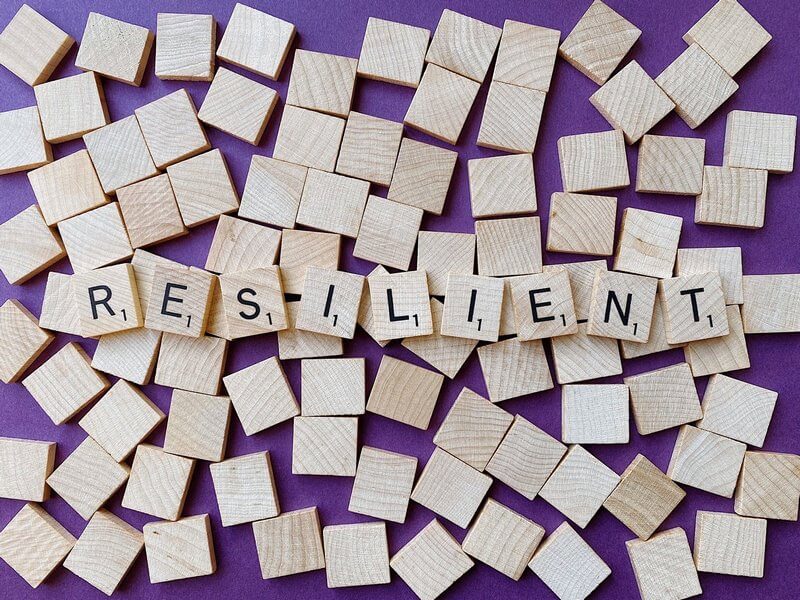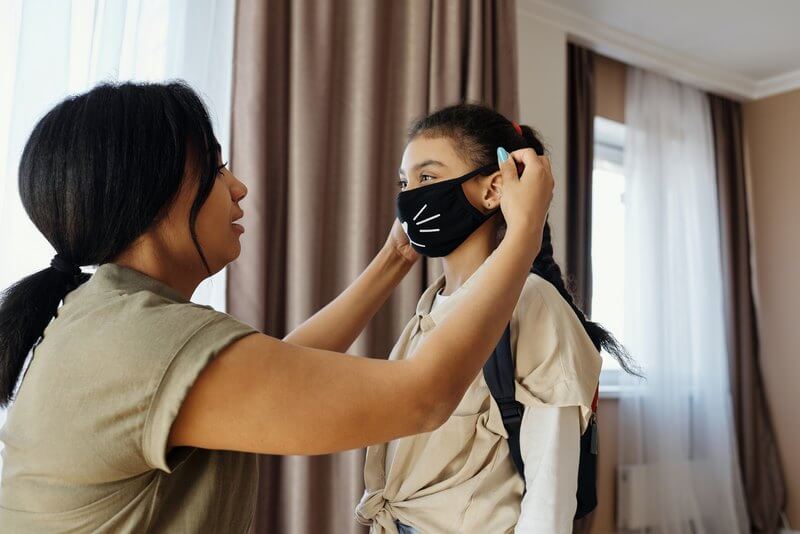
Being resilient when you aren't feeling it
The importance of resilience during COVID-19 is being promoted as many of us in the United States, South America, and Europe sees a rise in coronavirus cases. I first sat down to write this blog when I was not feeling resilient. I was having a moment. Everything going on over the past few weeks was catching up with me. It’s been feeling like COVID Groundhog Day. Not only has my team at work continued to lead ongoing crisis response, but we are re-launching pre-coronavirus projects. On a personal level, I spent time trying to settling my father’s affairs after he died suddenly this summer. I try to enjoy life with my husband and greyhound, Della, with the time I have left.
CNN’s health tracker reported last week that the virus has spread to nearly every continent since December, and case numbers continue to rise. There is a concern for individuals in high-risk categories. Additionally, you are likely tracking hospitals, as I am, hoping that they do not become overrun with patients. In Texas and Arizona, some areas are setting up to triage patients at hospitals to address the overflow.
So, there are many reasons not to feel resilient. Additionally, with the presidential election coming up in the US this week, many are on edge that their candidate may not win. Living in a world with this level of uncertainty is anxiety-inducing. This is why I believe now more than ever; we need to support a four-pronged approach to resilience. This approach includes maintaining personal, encouraging business, promoting business continuity, and supporting community resilience.

Emotional resilience
The concept of resilience has gained traction over the years. It is a counseling psychology technique to help clients recover from traumatic events. The methodology also teaches people how to “bounce back.” Conceptually, it empowers the individual to repair themselves and build up reserves to mitigate future impacts. There are multiple ways to achieve this. Some processes include confronting and making peace with past traumas. Others are to embrace stress reduction techniques, adopting a healthy lifestyle, and meditation.
All of these techniques contribute to achieving resiliency. A resilient person is better immunized to challenging events. By building up resilience allows the individual to be less affected by negative events.
In my Director of Emergency Services role, I spent significant time promoting Psychological First Aid as part of disaster planning. Now more than ever, a national model for states to promote a simple effort to encourage disaster behavioral health is needed. Sadly, I have seen little innovation in this area since leaving public service nine years ago.

Business resilience
However, I am happy to see that resilience is gaining traction in the private sector, aligned with business continuity. The DRII recognizes companies for achieving Resilient Enterprise status, and this is a good step forward. If anything, COVID-19 has encouraged us to focus on individuals’ health as part of successful organizations. To have a healthy tree (org), you need to have healthy soil and roots (people, supportive systems).
The importance of resilience during COVID-19 can also be seen in adjusting business models to succeed in the future. More than ever, companies need to practice a flexible, nimble, and agile approach. This means adjusting their goals and making swift operational decisions in the face of this pandemic. Doing this allows our organizations to stay competitive and forecast the new normal. It also entails supporting their employees, with a focus on enhancing key benefits like mental health services.

Business continuity resilience
As I discussed in my blog, Top 3 Reasons For A Business Continuity Program, companies need to adopt an operational resilience mindset in their approach to BCM. Now is the time to move on from an outdated model of business continuity. Instead, we should embrace operational resilience by leveraging the ROI of real-time data and preparing to respond to a wider range of crisis events. At its core, this approach combines a protective approach with a framework of rapid response and recovery.
We can all learn from the stories out there of business continuity departments being axed because management did not see their value. Some companies saw their BC programs’ inability to anticipate the pandemic scope as a major failure. Others have built on the frameworks they already had in place. At the same time, Employment Market Trends are Booming for Business Continuity Professionals. Many of us have the rare opportunity to show our value to our companies in real-time. To succeed in the new normal environment, we must be adaptable.

Community resilience
Last but probably the most important aspect is that we need to continue to nurture our community relationships. If I am being honest, I am envious of my husband because he can service and interact with his customers in their offices across our region. He can directly connect with them in an in-person way that many of us cannot do as we continue to work remotely. I miss that human contact. Even though I have learned over several years of practice to adjust my communication style to working from home, it can still be hard not to have face to face interactions. Instead, I maximize IM, Zoom meetings, and VOIP chats.
The same is happening in our communities, with fewer opportunities to interact with our neighbors and friends. We lose too much if we give up all of our human interactions. I believe we can do things safely but continue to nurture what makes life good for people, and that is togetherness. Last Sunday, I joined my girlfriends in an outdoor POUND exercise fundraiser class. Not only did I get to try a new exercise routine and catch up with friends (socially distanced), but I was able to contribute to an event to raise money for a local woman who is battling late-stage breast cancer.

Final thoughts
The importance of resilience during COVID cannot be understated. We need to practice flexibility and tap into our inner strength during the pandemic. Sometimes we have to remind ourselves to be resilient. At other times, we need to refresh or support others to call on their inner reserves to bounce back from this difficult experience.
Resilience works best when we take a systematic approach to build its foundation. Then, we must be strategic enough to evolve our programs and nurture resilience continuously. The concept of disaster resilience is something I am passionate about and discussed in a previous blog. In it, I discuss how it aligns crisis response, business resilience, and psychological resilience. Now more than ever, we should be taking opportunities to engage our leadership in strategies to integrate disaster resilience operationally to mitigate against future events.
You can contribute to the Mission for Meggles GoFundMe fundraiser. As stated on the page, Megan has lived on Cape Cod all of her life. She and her husband are local business owners with three young children. Megan was diagnosed with stage 3 Breast Cancer in March, and on May 19th, she underwent a double mastectomy.
